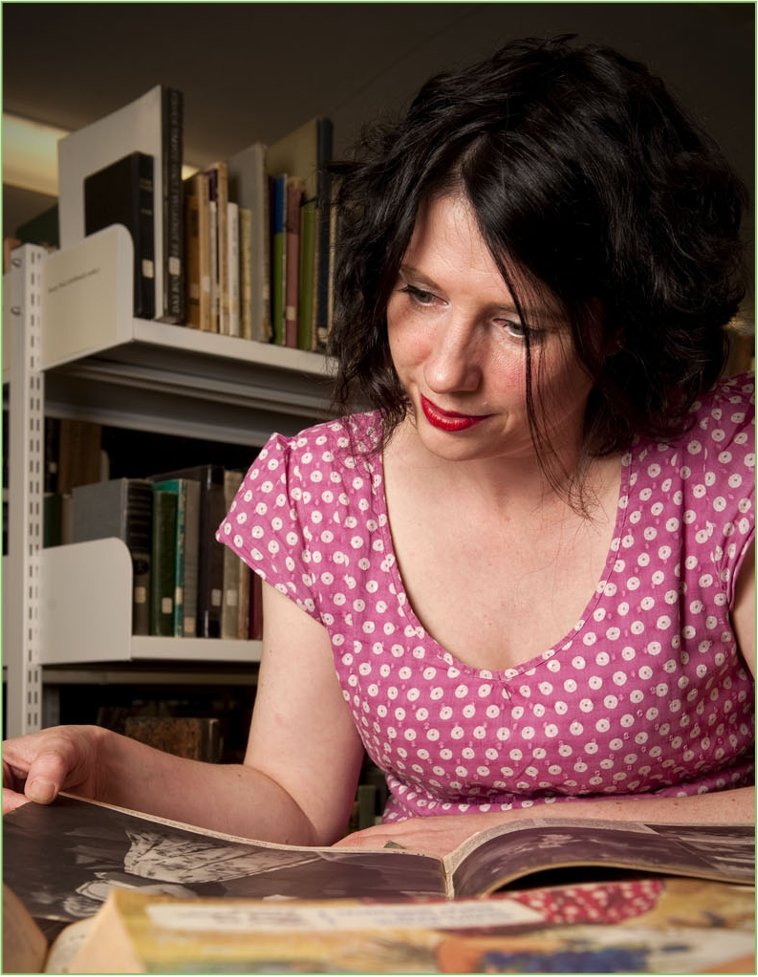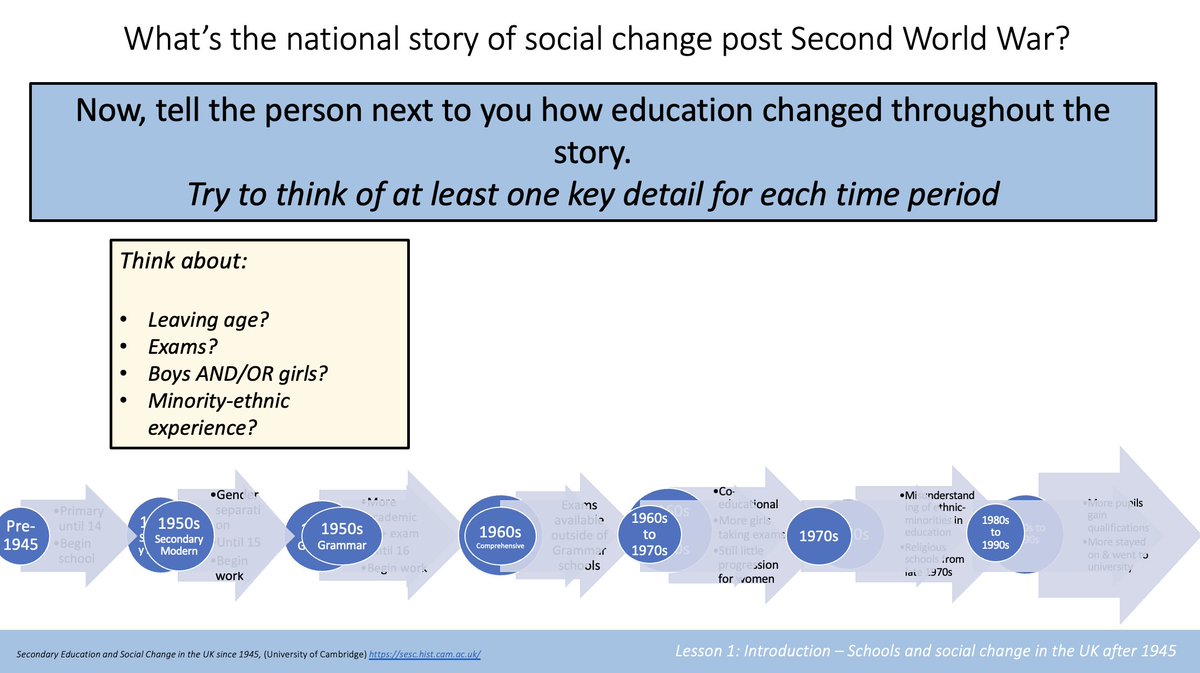
[🧵1/9] This week’s ‘deep-dive’ is our KS3 ‘Everyday School life’ resource pack created by @jonnysellin ➡️a 7-lesson enquiry exploring how everyday experiences of secondary school provide insight into Britain’s wider social history...
history.org.uk/secondary/cate…
history.org.uk/secondary/cate…
[🧵2/9] This enquiry is packed with things pupils already know tons about - classrooms, teachers, school dinners, uniforms - all are a way into studying social, cultural, and economic change in Britain over the past 75 years through a set of rich and diverse primary sources... 

[🧵3/9] Lesson 1: Introduction - Schools and Social change in the after 1945
All packs start with this (optional) lesson on the big picture of postwar social change, feat. a timeline activity & a chance to integrate your own school’s history into the story
All packs start with this (optional) lesson on the big picture of postwar social change, feat. a timeline activity & a chance to integrate your own school’s history into the story

[🧵4/9] Lesson 2: Architecture - Were Britain’s post-war schools a failure? 🏫
Pupils explore the architectural planning & problem-solving of Britain’s postwar school builders, using contemporary newspaper reports
Pupils explore the architectural planning & problem-solving of Britain’s postwar school builders, using contemporary newspaper reports

[🧵5/9] Lesson 3: Corporal Punishment - Who ended corporal punishment in British schools? 🥿📕
Pupils weigh up ‘top down’ & ‘bottom up’ evidence, incl. contributions of activist groups, local government, pupil & parent opinions, feat. a video with historian @ClaireLanghamer

Pupils weigh up ‘top down’ & ‘bottom up’ evidence, incl. contributions of activist groups, local government, pupil & parent opinions, feat. a video with historian @ClaireLanghamer


[🧵6/9] Lesson 4: Homework - Why is it difficult to research homework? ✏️📒
Pupils tap into evidential problems w investigating the history of homework. They use school prospectuses, oral histories, timetables, & sociological material from the 1958 birth cohort @CLScohorts
Pupils tap into evidential problems w investigating the history of homework. They use school prospectuses, oral histories, timetables, & sociological material from the 1958 birth cohort @CLScohorts

[🧵7/9] Lesson 5: School Dinners - What makes school dinners so interesting to study? 🍲💵
Pupils find evidence on school dinners from set sources & situate them in wider political debates, especially re. economic change & food poverty, feat. a cameo from @MarcusRashford
Pupils find evidence on school dinners from set sources & situate them in wider political debates, especially re. economic change & food poverty, feat. a cameo from @MarcusRashford

[🧵8/9] Lesson 6: School Uniform - What has school uniform represented since 1945? 👖👔
Pupils look at diff experiences and opinions of school uniform over time & what it can tell us about changing postwar society. Egs incl. Glasgow mums & feminist campaigns for girls’ trousers
Pupils look at diff experiences and opinions of school uniform over time & what it can tell us about changing postwar society. Egs incl. Glasgow mums & feminist campaigns for girls’ trousers

[🧵9/9] Lesson 7: Summing Up - What do different sources reveal about schools and society in Britain after 1945? ✅
This lesson covers all 5 topics, & works as one-off or wrapping-up. Pupils return to some previous sources to justify why schools help us to research social change
This lesson covers all 5 topics, & works as one-off or wrapping-up. Pupils return to some previous sources to justify why schools help us to research social change

• • •
Missing some Tweet in this thread? You can try to
force a refresh






